“Serve the right food to the customer with a heart.”
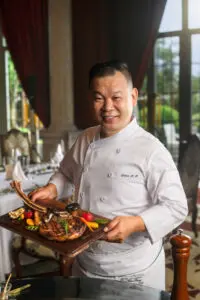
A lot of readers are interested to know the job of a hotel executive chef, what they do, what they think, and how the heck they can make so delicious cuisines. One day I mentioned this to Mr. Jin Jin, Area General Manager (Chengdu & Chongqing, South & West China) and General Manger of InterContinental Century City, Chengdu, he would go to nominate his two very capable executive chefs, Chew Chen Shiong and Steven Wong for me to interview respectively. The following is my interview with Chef Chew.
1. What do you do at the InterContinental Century City Chengdu?
I work as complex executive chef for both InterContinental Century Chengdu (including International Convention Center) & Holiday Inn Chengdu Century City.
- Tell us about your journey, how did it all start?
I grew up “playing” at my parent’s home style small restaurant starting with opening and closing restaurant, eventually getting into killing fish, frogs, turtles and cutting vegetables. At one point I was trying out other things but ended up coming back to the kitchen. I took up hospitality management and specialized in culinary since I had found my interest. After graduating, I started my hotel career at the Four Seasons Singapore, and had since left my footprints in Thailand, Australia, Malta, Germany, Italy, France, India, and now China.
- Describe the training that you have and how it relates to this position.
Besides hotel management, I had also attended food hygiene and human resource training courses. But most importantly, I would say it is my interest in discovering gastronomic from around the world that keeps me moving forward.
- What’s your previous experience in the kitchen?
I achieved executive chef position in 2011; and I have 6 hotels’ opening experience under my belt.
- What’s your philosophy on food?
Serve the right food to the customer with a heart.
- How might you describe the role of an executive chef?
- Guide my kitchen team to work well with service team to bring the best of our dishes to the guests.
- Lead presentation, taste and be aware of signature dishes in the field.
- Understand each of my team member’s strength and advantage.
- Act as a coach, share my experience and philosophy
- Provide guidance and assist them to reach their personal target.
- Set the goal and direction for the department.
- Please walk us through a typical day at work. How do you prioritize your tasks?
- Get in office to check all the emails and take down important note to share, double check daily BEO (Banquet Event Order), walk through all kitchens.
- Attend morning briefings including F&B department morning briefings, check on receiving area, share important message to related kitchens.
- Lunch time walk through all kitchens and stay in the busiest kitchen.
- After lunch kitchen daily briefing, double check on the following day BEO, exchange information with each kitchen, share update news.
- Prepare menu requests from sale team.
- Dinner walk through and supervise on large events, talk with team and encourage them especially during the busy times.
- What’s the most important aspect of being a good chef?
Be passionate and enjoy cooking.
- Describe something that has surprised you about working as a chef.
Learn all different cooking / preparation methods using the same ingredients.
- When you hire new staff, what do you look for in potential employees?
Their attitude and mindset.
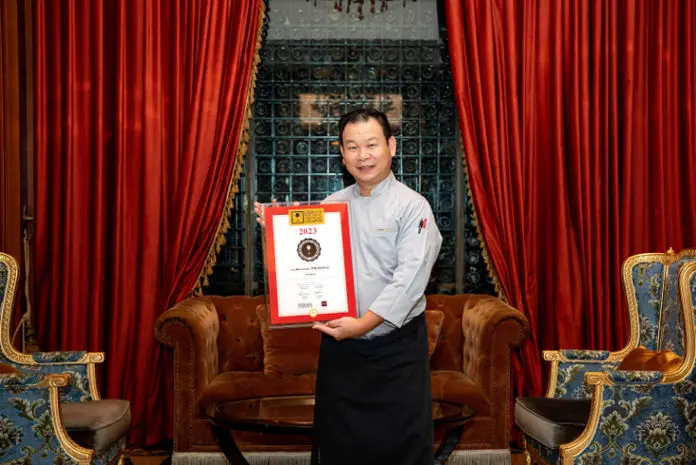
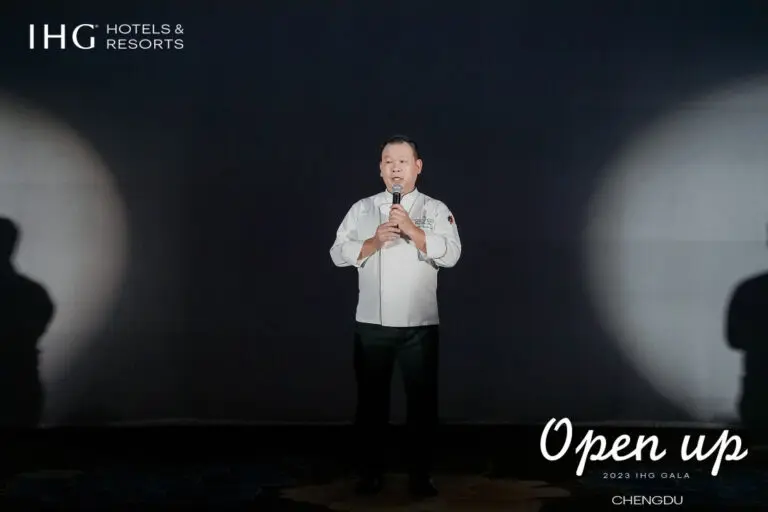
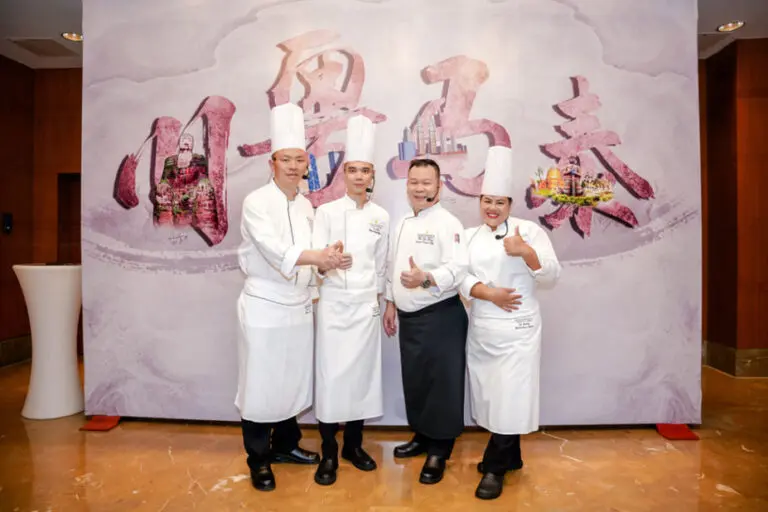
11. How might you describe your management style?
Listen what others have to say, set example and provide guidance.
12. How do you handle conflict in the kitchen?
Listen to both parties separately, then bring them all in and talk it through.
13. What’s your favourite part of being a chef?
Cook food.
14. And the not favorite part?
Ingredients received below standard.
15. Where do you see yourself in five years?
Keep coaching future chefs; still, keep cooking.
16. How do you stay up with the culinary trend?
Observe and pay attention to food exhibition, update food trend.
17. What’s your favourite ingredient to work with?
Beef.
18. What are your thoughts on local vs. imported ingredients?
The gaps are getting smaller as new techniques new breeds are getting introduced and implemented.
19. What’s your approach to sourcing locally-grown ingredients?
Monthly visit to local market.
20. What’s the most unusual ingredient you use in cooking?
Sichuan pepper for western food.
21. What foods do you like to pair together and why?
Beef and potatoes. Just love it.
22. How does your winter menu differ from your spring menu?
Winter menus will have more braised, stewed, roasted cooking technique whereas spring menus will have more sauté, boiling and steamer style applied.
23. How do you control the quality of the food that goes out to customers?
Use standard recipes and standard presentation with photos; training, and check practicing.
24. How might you describe your cooking style?
Classic, modern and fusion.
25. How do you keep your kitchen clean?
Clean as you go.
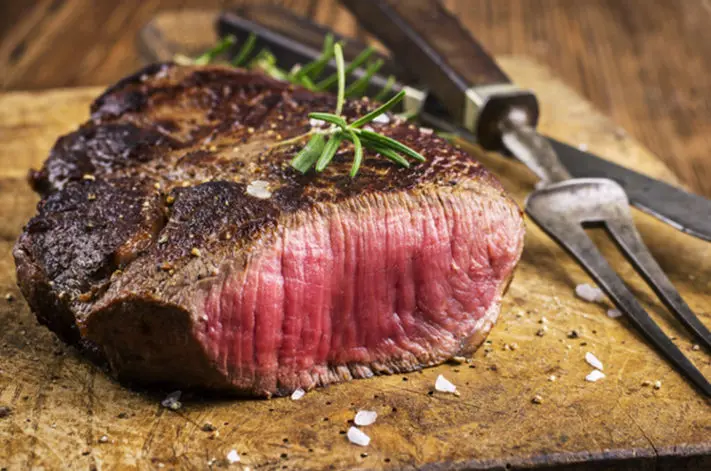

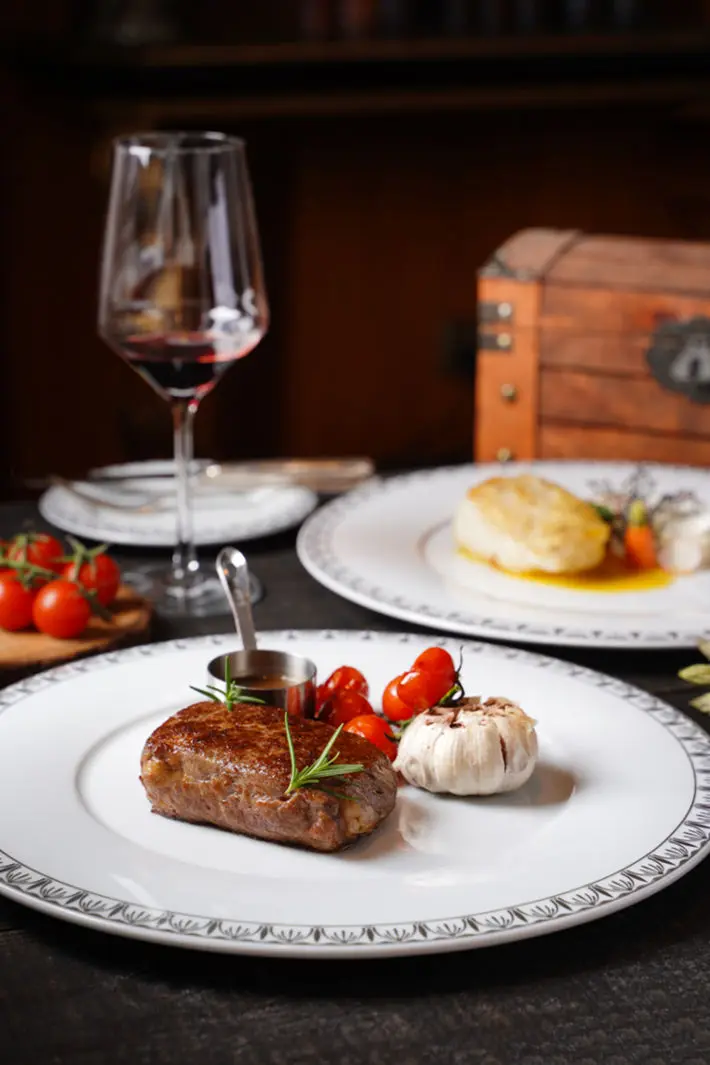
26. What’s your strategy for developing new recipe ideas?
Try, eat, watch and listen.
27. What’s the best way for a customer to describe your food?
Finish with the food, empty the plate.
28. Are there any foods that are especially popular in your area that people might not know about outside of your region?
Petai bean (aka stink bean).
29. What are some ways you’ve used technology to streamline processes in the kitchen?
AI oven, smaller menus, menus change more often.
30. What do you do when customers request ingredient substitutions?
I would talk with our guest to find out why they would want to change the ingredient. I would try the dish and see for another combination.
31. How do you handle special diets (such as gluten-free diets)?
Diet is a choice not a special case anymore. It can be easy if the guest has very specific requests. For a la carte, find out what guest like and prepare a special menu. When it comes to events, communication with the organizer is way too important regarding diets.
32. Can you recall a time you handled a situation with a disappointed customer.
Apologies to guest, talk to guest and find out what their expectation are and then prepare a new dish right away.
33. Recall someone who you have trained or mentored. Where did they start? Where are they now?
I met Donald in Malta while opening Malta InterContinental in 2002. I was a specialty chef and he was a chef de partie at the time. He showed me his keen interest to learn Asian food. During that 2 years working together, I was happy to share my knowledge and skill. I gave him a culinary book and I wrote “A boat sailing against the current must forge ahead or it will be driven back”. 3 years later, he emailed me saying he had become an executive chef, too and he got to understand what my words meant.
34. How would you improve the establishment?
I envision a centralized kitchen and supply chain that can be perfected, where dishes are processed into uniformly packaged semi-finished products before they are delivered to the back kitchen, and the store only needs to separate them into categories for display. The entire dining process, from preparing and passing the food to recycling and cleaning, is formed into a fixed system with the help of technology.
35. What have you done in the last year to improve your skills and competence?
Type in mandarin by learning pin-yin.
36. Do you have any wine knowledge? Could you recommend wine pairings for the menu
I know a little bit about foreign wines, and incidentally, lately I’ve been trying to get foreign wines on my chef’s menu in the form of accompaniments. Recommendation is personal but I am confident guests would like my pairings.


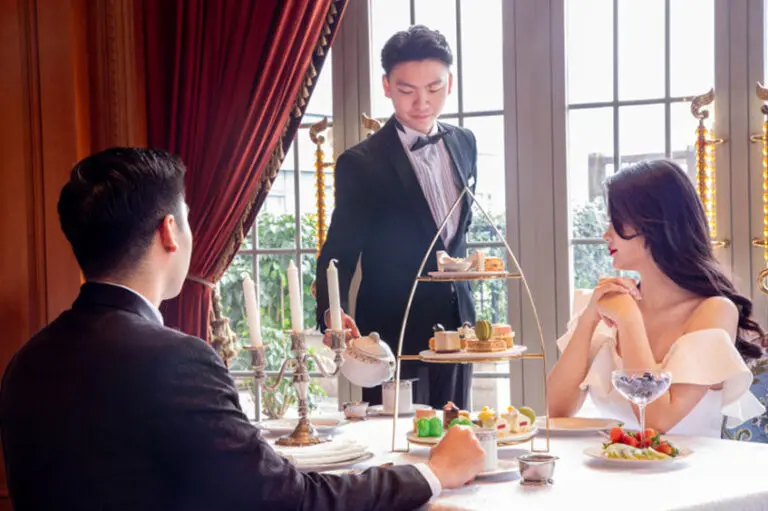
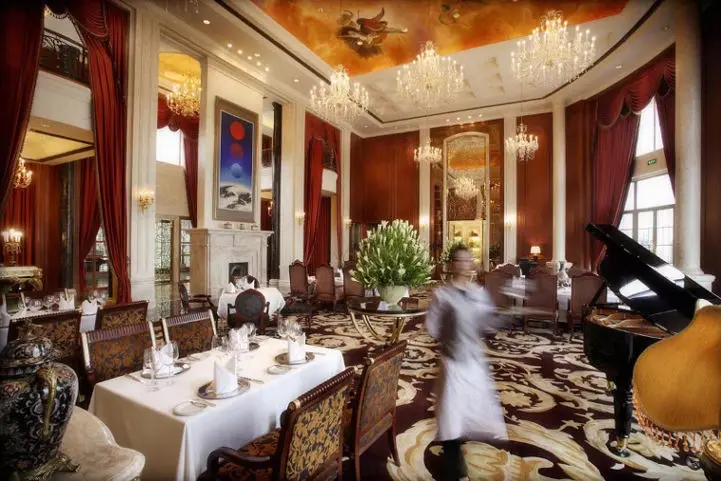
Book online or call
+86 28 8534 9999 – 3540
Email: [email protected]





